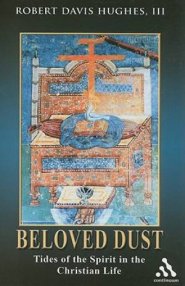Beloved Dust is a book with a vast scope, and a lofty aim. It sets out to construct a spiritual theology which not only draws upon the traditions of pervious eras, but also pays attention to contemporary understandings of psychology and behavioral sciences. This, then, is a book which stands within the stream of what used to be called mystical or ascetic theology but which is also fully conversant with contemporary thought. Hence the vast scope and lofty aim!
Part one discusses the rise and fall of spiritual theology as a discipline, and considers reasons for its current neglect amongst theologians and church structures (although there remains a desire amongst members of the church for developing spirituality). This section draws this together and proposes Hughes' metaphor for the spiritual life on page sixty six.
"The picture I propose is as follows: the spiritual life of any given Christian is determined by the interplay of two great narrative arcs or story lines: one is our own empirical history as creatures of dust, which can be studied by a wide variety of human and natural sciences. This is a kind of shore on which break the three great currents of the Spirit's mission, which, from the human side, can be called conversion, transfiguration, and glorification. The tides at any given point are determined by the confluence of the currents of the Spirit with the particular human shore on which they are breaking. Good discernment is thus a kind of intuitive table of the tides." (p. 66).
The remainder of the book follows this imagery. There are discussions of the 'shore' - which includes the work of those involved in behavioural science - and the waves, which consider the works of the Spirit upon the individual. The metaphor of waves allows also for a discussion of the slack between them which may lead to a 'dark night' as understood by John of the Cross.
This is a well researched and learned book. Whilst there is much to be learned from its surveys and engagement with traditions, its great value comes in the metaphor of waves and shore. The dust of the shore is ultimately glorified, but the workings of the tide help to explain the ebbs and flows of an individual's life. Hughes has made a great contribution to spiritual theology and, one hopes, will initiate a fresh flowering of this long ignored field.
Shortlisted for the Michael Ramsey prize for Theological Writing 2011.
Trustpilot











